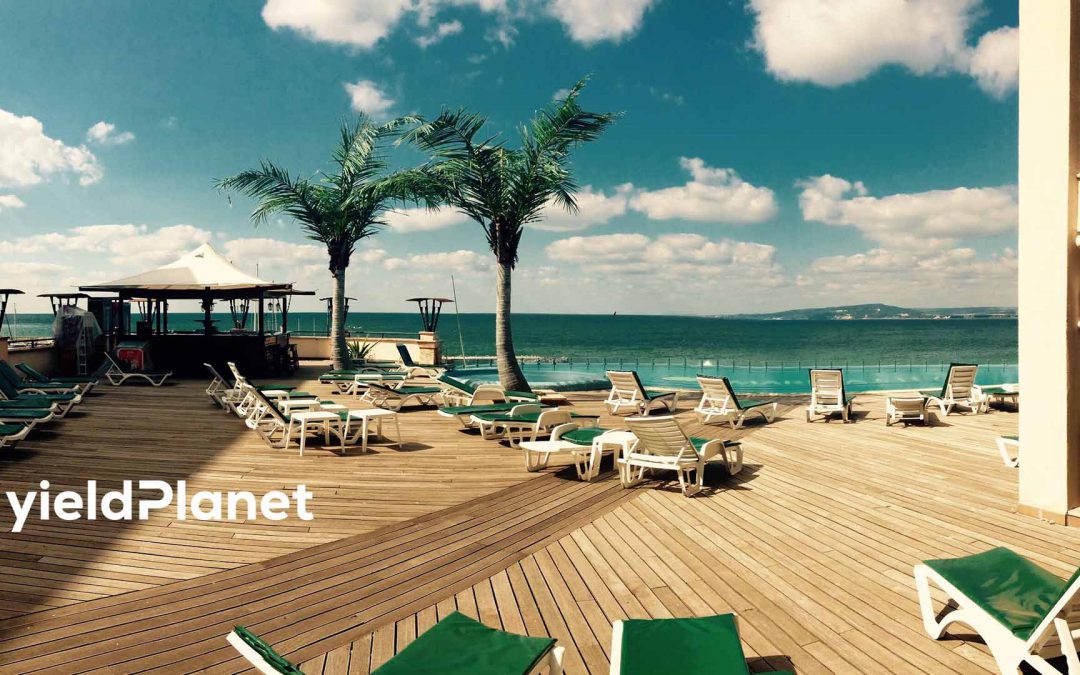The revenue management concept was devised thirty years ago and is effectively employed today by most hotels and airlines. However, even though hotel managers often talk about revenue management, the definition of the concept differs depending on the individual… One thing is for certain – revenue managers are faced with the most important challenge in running a hotel, namely selling the right rooms to the right customers at the right time and rate through the right sales channel.
What is Revenue Management?
The revenue management concept was devised thirty years ago and is effectively employed today by most hotels and airlines. However, even though hotel managers often talk about revenue management, the definition of the concept differs depending on the individual… One thing is for certain – revenue managers are faced with the most important challenge in running a hotel, namely selling the right rooms to the right customers at the right time and rate through the right sales channel.
This article is aimed at broadening your understanding of hotel revenue management. Using my experience, I will try to familiarize you with the concept of revenue management and to present you with a ten-point list of the best practices of its implementation.
Let us start with some history.
A short history of revenue management
Revenue management emerged when the US federal government made the move to deregulate airlines at the beginning of the eighties. A few years on, sales performance strategy planning became a commonplace practice among the biggest carriers. Revenue management even has its unofficial birthday – 17 January 1985 – the day on which American Airlines launched its “Ultimate Super Saver” special offer aimed at weakening their competitor, the low-cost PEOPLExpress airline.
The hotel industry was quick to notice the benefits that airlines gained from embracing revenue management. However, it was initially slow to spread across hotel chains as they lacked adequate data processing technology and often had little guest data to process. What is more, the main obstacle that had to be overcome was managing the length of stay – a variable that was not present in airline revenue management.
The economic roots of revenue management
Understanding the close ties between economics and revenue management is essential if one wishes to understand the philosophy behind the latter. The process of devising hotel rate strategies is directly tied to economic concepts: both revenue management and economics emphasize the meaning of supply and demand as well as the price elasticity of demand. These concepts, combined with methods of determining the associated indicators, are crucial for successful revenue management.
Integrating revenue management into hotel operations
Revenue management is not an independent process in hotel operations. Its full potential becomes apparent only when it is integrated into the remaining hotel management processes. Employees should be familiarized with it and it should become an inherent part of hotel operations. The revenue management culture should be introduced with strong support from the management and be based on a strong conviction in the positive outcomes that the associated practices will bring. Hotel management should set sales goals for each department and for the hotel as a whole. Introducing additional salary bonuses, especially at the departmental level, is also a good solution. When team members are motivated, they focus on doing that which is best for the hotel and not for themselves personally.
Revenue management should not be perceived solely as a manner of conducting business as a hotel, but encompass all of the hotel’s activities with a common commitment from all individuals involved.
Research your market
Below are several questions that will test your knowledge of the market:
- What is your market penetration?
- What is the market share of the individual segments of your business?
- What is your hotel’s position in the market?
Business intelligence reports covering the hotel industry may prove very helpful in obtaining the above information. A good revenue manager is well aware of the influence that external and internal factors have on the local market and on the hotel’s position within it. As a revenue manager, you may carry out a SWOT analysis of the above factors. Do not forget to also carry out a thorough comparative analysis.
Ask yourself the following simple questions to determine your position in the market:
- Does your hotel set or follow price trends?
- If your hotel sets price trends, then have you compiled an accurate
list of your competitors? Do you know what factors should be taken into account when doing so? Is your list of competitors based on the number of bookings or only the room rates?
- How is your hotel positioned with regard to its business mix?
- What is your RGI (Revenue Generation Index)?
The next article in this series elaborates on the subjects of market segmentation, revenue strategy, forecasting and setting rates. Read PART 2: The basic ingredients of the revenue management recipe.
About the Author
Zak Ali, the Global Revenue Development Director at YieldPlanet, has over 12 years of experience in Revenue Management and hotel distribution. Zak has managed hotels of various sizes in many of the world’s key markets, including London, Dubai and Singapore. He has also taken part in creating a global rate application which has been implemented in 3000 hotels. Zak is a Certified Revenue Management Executive (CRME), a title awarded by the Hospitality Sales and Marketing Association International (HSMAI).





















